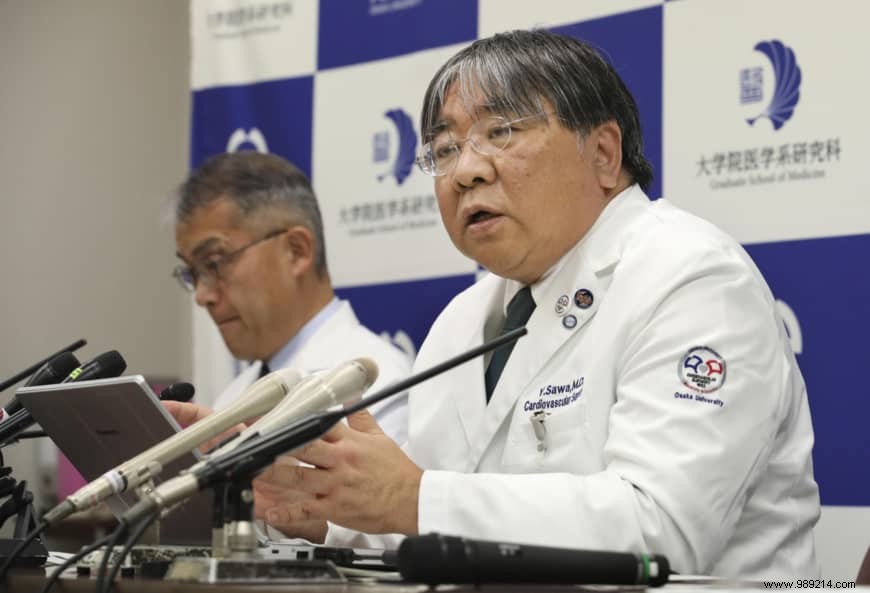A team of Japanese researchers announces that they have transplanted heart cells grown in the laboratory into a patient.
Cardiomyopathies are diseases that affect the myocardium (the heart muscle). Grossly, this muscle is not getting enough blood. In fact, this prevents the heart from pumping enough of it to circulate it throughout the body. In the most serious cases, when the patient's vital prognosis is engaged, it is necessary to perform a heart transplant .
However, apart from the lack of available plugins, this type of procedure is still very risky. Indeed, it involves lifelong immunosuppressive drug treatment to reduce the risk of rejection. It also requires close medical supervision , in particular to avoid the risk of infection. This is why researchers at the University of Osaka, Japan, have been looking for a few years at another alternative less risky and less restrictive .
Rather than replacing the patient's organ entirely, the general idea would be to implant cardiac muscle cells directly on damaged areas of the heart.
On the technical side, induced pluripotent stem cells (iPS) are collected from the patient first. Simply put, these cells are able to be reprogrammed in their embryonic state. At this point, researchers can then trick them into becoming whatever type of cell they want. In this case, they will become heart muscle cells.
Once cultured in the laboratory, these new cells are then integrated into small biodegradable sheets measuring approximately 4cm wide and 0.1mm thick. These are then placed on the damaged areas of the heart. Once this "band-aid" is in place, the cells can then secret a protein . This regenerates blood vessels, improving the patient's heart function.
The advantage of this new technique is that it is much easier to obtain iPS cells than whole cores. Moreover, the risk of rejection is almost nil since these cells are taken directly from the patient.
This procedure had never been attempted in humans until now. It is now done. As part of a clinical trial, the Osaka University surgical team led by Professor Yoshiki Sawa attempted a first intervention on Monday. And the procedure went very well.

Researchers now plan to monitor the progress of this patient during this year. They also hope to perform the same procedure on nine other people with the same condition over the next three years.
If successful, this new procedure could become in a few years a real alternative to heart transplants.
Source
Related articles: